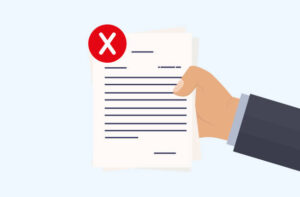Tax identity theft occurs when identity thieves obtain your Social Security number and file a fraudulent tax return on your behalf.
According to the Federal Trade Commission, tax identity theft is the most common form of identity theft. The FTC estimates that it costs taxpayers over $5 billion a year.
Consumer advocates believe that since Social Security numbers are so readily available on the dark web, a majority of Americans are at risk.
Unfortunately, most tax identity fraud victims don’t realize that they have fallen victim until they try to file their return. Luckily, there are some important tips that you can follow to reduce your chances of falling victim to tax identity theft.
Our firm specializes in negotiation with the IRS on behalf of taxpayers and settling back taxes, often for a fraction of what you owe. In the case of tax identity theft, the IRS has protocols on how to handle this and our firm can help. If you find yourself the victim of tax identity theft, reach out to our firm and schedule a consultation today at (800)593–7491.
1.) File Your Taxes as Soon as Possible
According to the FTC, tax identity thieves file their fraudulent returns early because they know that most taxpayers wait to file their return later in the tax season. Therefore, you should file your tax return as early as possible to lower the chances that a scammer will file your return fraudulently.
2.) Monitor Your Credit Report
Your annual credit report will tell you the different times your Social Security number was used throughout the year. Therefore, if you notice that someone else has used your Social Security number to obtain employment, there is a good chance that you are currently (or about to become) a victim of tax identity theft. You will need to contact the IRS immediately to report the suspected fraud.
3.) Safeguard Your Personal Information
You need to have a safe place to securely store personal information. For example, you might consider a safe or a bank deposit box. You must never leave paperwork with personal information on it just lying around your house where it would be easy for a visitor to swipe it. Also, never throw away documents with confidential information on them without shredding them first. Identity thieves will often go through trash looking for paperwork with personal information on it.
4.) Review Your Annual Social Security Earnings Statement
The Social Security Administration provides taxpayers with an annual earnings statement. You can find yours by registering an account on the SSA website. Review your earnings statement carefully. If you notice a discrepancy in your reported earnings, contact the SSA and the IRS.
5.) Never Share Personal Information
Don’t share your Social Security number when you don’t have to. For example, if a company asks for your Social Security number, ask them why it’s necessary for them to have it. Unfortunately, you will have to give your number to financial companies and utilities. However, most businesses don’t need it. Also, don’t give out your birthday unless absolutely required to by law. If identity thieves can match your Social Security number to your birthday, you are a prime candidate for identity theft.
6.) Install Comprehensive Internet Security Software
All of your computing devices should have antivirus software and a firewall to prevent hackers from stealing your personal data. Many devices come with built-in virus and malware protection. For example, computers running on Microsoft come with Windows Defender and the Windows Firewall. Chromebooks receive security software updates for five years after their manufacturing date. You can also purchase third-party antivirus software if you aren’t satisfied with what is installed on your device.
7.) Regularly Change Online Passwords
Finally, you can cut your risk of falling victim to tax identity theft by regularly changing the passwords to your online accounts. For example, if the password for your online bank account became compromised, a hacker could steal your Social Security number. Just make it a habit to change your password every 90 days (which is what cybersecurity experts recommend).
In short, there are (currently) no full-proof ways to prevent tax identity theft. However, you can dramatically reduce your risks of falling victim by filing your tax return as early as you can.
You should also monitor your credit report and protect your personal information. Review your Social Security earnings to ensure an identity thief isn’t using your Social Security number to report earnings. Never give out personal information that you don’t have to. Don’t use any computing devices without internet security software and a firewall, and protect your personal data held in online accounts by changing your passwords often.
OWE BACK TAXES OR HAVE TAX PROBLEMS?
It’s important to note that only experienced firms like ours are able to handle tax debt cases and tax identity theft cases since negotiating with the IRS requires specialized skills that often fall outside of the scope of most conventional accounting, tax, and tax law firms.
Our firm specializes in tax problem resolution. We have CPAs, EAs and attorneys who can represent you before the IRS. We serve clients virtually so don’t hesitate to reach out. If you want an expert tax resolution specialist who knows how to navigate the IRS maze, reach out to our firm and we’ll schedule a no-obligation confidential consultation to explain your options to permanently resolve your tax problem by calling (800)593–7491. You can also visit our website at www.brightsidetaxrelief.com.




